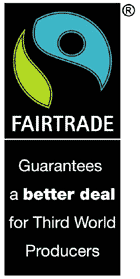
Relacionado con el post orgánico de Luis de la semana pasada, acá Tyler Cowen cita un interesante artículo de "The Economist" que se refiere a este tipo de cultivos y sus dudosos beneficios.
También se cuestiona en el artículo el tema de Fairtrade y el café:Perhaps the most eminent critic of organic farming is Norman Borlaug, the father of the “green revolution”, winner of the Nobel peace prize and an outspoken advocate of the use of synthetic fertilisers to increase crop yields. He claims the idea that organic farming is better for the environment is “ridiculous” because organic farming produces lower yields and therefore requires more land under cultivation to produce the same amount of food. Thanks to synthetic fertilisers, Mr Borlaug points out, global cereal production tripled between 1950 and 2000, but the amount of land used increased by only 10%. Using traditional techniques such as crop rotation, compost and manure to supply the soil with nitrogen and other minerals would have required a tripling of the area under cultivation. The more intensively you farm, Mr Borlaug contends, the more room you have left for rainforest.
What about Fairtrade? Its aim is to address “the injustice of low prices” by guaranteeing that producers receive a fair price “however unfair the conventional market is”, according to FLO International's website. In essence, it means paying producers an above-market “Fairtrade” price for their produce, provided they meet particular labour and production standards. In the case of coffee, for example, Fairtrade farmers receive a minimum of $1.26 per pound for their coffee, or $0.05 above the market price if it exceeds that floor. This premium is passed back to the producers to spend on development programmes. The market for Fairtrade products is much smaller than that for organic products, but is growing much faster: it increased by 37% to reach €1.1 billion ($1.4 billion) in 2005. Who could object to that?
Economists, for a start. The standard economic argument against Fairtrade goes like this: the low price of commodities such as coffee is due to overproduction, and ought to be a signal to producers to switch to growing other crops. Paying a guaranteed Fairtrade premium—in effect, a subsidy—both prevents this signal from getting through and, by raising the average price paid for coffee, encourages more producers to enter the market. This then drives down the price of non-Fairtrade coffee even further, making non-Fairtrade farmers poorer. Fairtrade does not address the basic problem, argues Tim Harford, author of “The Undercover Economist” (2005), which is that too much coffee is being produced in the first place. Instead, it could even encourage more production.

Ramiro, Vos claramente no entiendes nada de nada y, para colmo, te falta la sensibilidad social.
ReplyDeleteTe explico. “Fair trade” es el precio que cobra el Coronelísimo Chávez a los EEUU y Europa por el petróleo de Venezuela. ¿O no te diste cuenta de que cuando el precio del barril se dispara la compañía estatal de petróleo de ese país lo vende por debajo del precio del mercado?